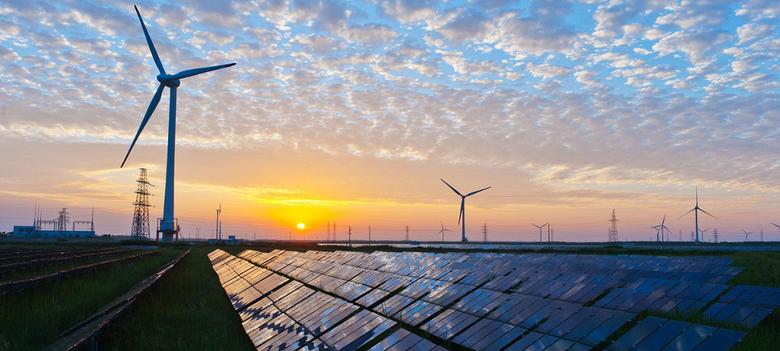
U.S. RENEWABLE ENERGY

REUTERS - Institutional investors remain eager to put money to work on renewable energy projects even as U.S. President Donald Trump has vowed to revive their chief competitor: coal, financial executives said at a conference this week.
"Five or six years ago, funds weren't specifically targeting renewable investment; today it's a key component of infrastructure investment," said David Giordano, managing director and head of North American, Latin American and Asia Pacific investments at BlackRock, on the sidelines of the Renewable Energy Finance Forum in New York.
Giordano, who is also a board member of the American Council on Renewable Energy, which put on the forum, said renewable energy was no longer considered a niche.
BlackRock's renewable infrastructure investment platform, launched in 2012 by Giordano's team, now manages more than $4 billion in client assets, mostly in wind and solar projects.
Strong interest in green energy comes as Trump is championing fossil fuels and targeting environmental regulations as job killers. Trump's administration, however, has made no moves to target federal tax incentives for renewable energy projects, which have helped make the technologies more competitive with traditional fuels like coal and natural gas, thanks mainly to bipartisan support in Congress.
Even without federal government involvement, executives noted that U.S. cities, states and corporations appear committed to renewable energy, as do most other countries. This should help projects attract capital in an era of low interest rates.
"We have seen considerable interest from a wide range of investor classes, including infrastructure funds, insurance companies, pension funds, money managers and corporations," said Raymond Wood, managing director and global head of power and renewables at Bank of America Merrill Lynch (BAC.N).
Major U.S. corporations such as Wal-Mart Stores Inc (WMT.N) and General Motors Co (GM.N) have become some of America's biggest buyers of renewable energy in recent years, according to industry figures reviewed by Reuters.
Wood noted that wind and solar developers together have added about 40 gigawatts to the U.S. grid over the past two years, bringing total installed wind and solar capacity to about 120 gigawatts.
After 15 to 20 years of growth, "it's telling that the system has added a third of its total capacity in the past two years," he said. "Practically speaking, renewables deployment has hit escape velocity. Experts see enormous additional installations between 2017-2020."
Wood said the bank's sustainability investment goal was $50 billion in 2013, but the target has grown to $125 billion by 2025.
He pointed to a deal in February in which Canada's investment fund manager Alberta Investment Corp teamed with U.S. power utility company AES Corp (AES.N) to buy FTP Power Llc, which builds utility-scale solar projects, for $853 million in cash.
While Bank of America was not involved in that deal, Wood said it illustrated growing institutional investor interest in the sector. Nick Knapp, managing director at CohnReznick Capital, said that deal also showed that utilities have a growing appetite for renewables.
Knapp said wind and solar project developers have many more financing options now than traditional utility power purchase agreements. Corporations are making agreements directly, and banks and other financers have developed hedges and other more nuanced financing options to attract investors.
Knapp said CohnReznick Capital has closed more than 90 M&A and project finance renewable energy transactions in the last few years, with an aggregate asset value of about $12 billion.
U.S. corporate demand for energy has "changed the dynamics of the industry," he said.
Corporate interest "forces utilities to increase their exposure," Knapp said. "We've passed that inflection point."
-----
Earlier:
CHINA'S RENEWABLE INVESTMENT: $368 BLN
RENEWABLE ENERGY: GROWING RISKS






